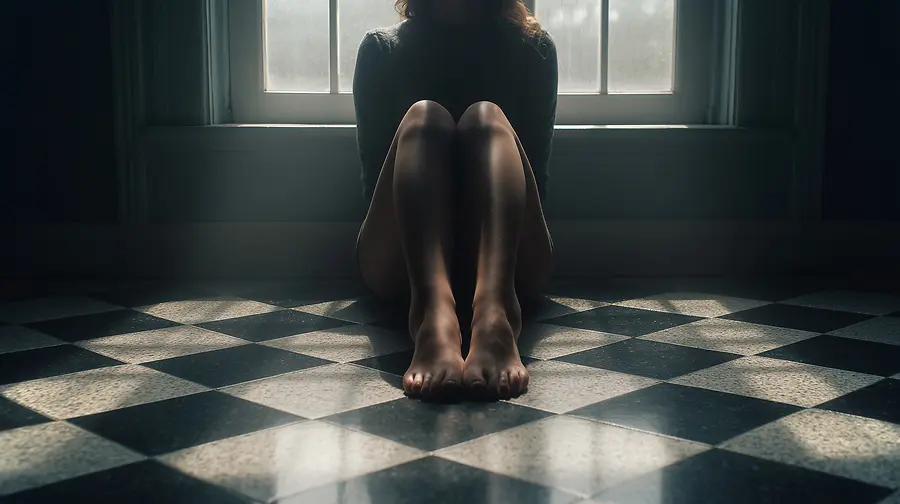Sorrow, Guilt, Shame
A woman's journey of confronting and making peace with her inner demons of Sorrow, Guilt, and Shame.

The house was quiet. She sat with her cup of coffee, staring at nothing, when the familiar heaviness crept in. This time, instead of pushing it away, she whispered, Fine. Speak. What do you want from me?
And they did.
Sorrow stepped forward first, soft and heavy.
“I’m the ache you carry for all you lost along the way. The childhood you never really had. The dreams you put aside. The moments you missed while surviving. I come when you’re happy because I want you to remember: there are parts of you that never got to live. I don’t mean to break you. I just don’t want those pieces forgotten.”
She swallowed hard. I see you, she thought. You’re the weight of everything I never got to be.
Then Guilt came, sharp and restless.
“I’m the voice that says you should have done more. More for your children, your parents, your husband, your friends. I remind you of the times you fell short, even if they were human moments. You call me when you start to think of yourself—because for so long, your worth was tied to what you gave away. If you choose yourself now, I panic. I tell you it’s selfish, because I don’t know who you are without sacrifice.”
Her chest tightened. You’ve been here my whole life, she thought. But maybe I don’t need you anymore.
And finally, Shame appeared, quieter but sharper, almost like a shadow that leaned too close.
“I’m the wound you never wanted anyone to see. I come from the mistakes, the regrets, the times you felt small or not enough. You pushed me down, buried me deep, but I learned how to follow you. I show up when you’re happy because I don’t believe you deserve it. I whisper that you’re a fraud, that you’ve failed, that if people looked closer, they’d see what you see in the mirror.”
Her eyes stung with tears. You’re the cruelest of them all, she whispered, and yet you’re only pieces of old stories I never let go of.
For the first time, she sat with them all—Sorrow, Guilt, Shame—without running. They weren’t monsters, just echoes. Echoes of survival, sacrifice, and silence. They weren’t truth. They were reminders.
She looked at them and said, I hear you. But you are not all of me. You may walk beside me, but you don’t get to drive anymore.
And for a moment, the voices softened.
Still, when the coffee went cold and the room was silent again, she knew they would return. They always did. The difference was, maybe now, she didn’t have to pretend she didn’t know their names.
The first time she spoke with them, it startled her. She thought naming them might make them vanish, but of course, it didn’t. They were old companions, not strangers who could be dismissed with a single conversation.
Weeks later, they returned.
This time it was at the grocery store of all places—standing in front of the fruit display, a song playing overhead from decades ago.
Suddenly, she felt that weight again. Sorrow tugged at her sleeve.
“You remember this song,” it said. “You were young then. You had dreams then. Look at how much time has passed.”
Her throat closed. She almost turned away, almost silenced it with the noise of her to-do list. But instead, she paused and answered in her head: Yes, time has passed. And I can grieve what I lost without losing what I still have. Sorrow didn’t leave, but it quieted.
Months later, Guilt showed up at night when she booked a spontaneous trip for herself.
“You shouldn’t,” Guilt sneered. “That money could go to your kids, to your parents, to someone who needs it more. You are selfish to want this.”
She lay awake, restless. But instead of canceling, she whispered back: I have spent a lifetime giving. This one thing, I will take for me. And that doesn’t mean I love them any less. Guilt didn’t vanish—it never did—but it loosened its grip.
And then there was Shame. Always the hardest one. It came when she laughed too loud at dinner with friends, when she caught her reflection dancing alone in the kitchen, when she dared to feel joy.
“Who are you to be happy?” Shame hissed. “You’ve made mistakes. You’ve failed. You don’t deserve ease.”
For a moment, it pierced her as it always had. But then she steadied herself, put a hand on the counter, and said softly: I am human. I am flawed. And joy is not something I must earn. It is something I am allowed to hold.
The voices never disappeared. They circled back, over and over, like tides. But slowly, she realized something: every time they came, she was a little less afraid. She could name them now. She could answer them. She could let them sit beside her without handing them the wheel.
And maybe that was the point—not to erase Sorrow, Guilt, and Shame, but to live alongside them without letting them consume the space meant for her.


